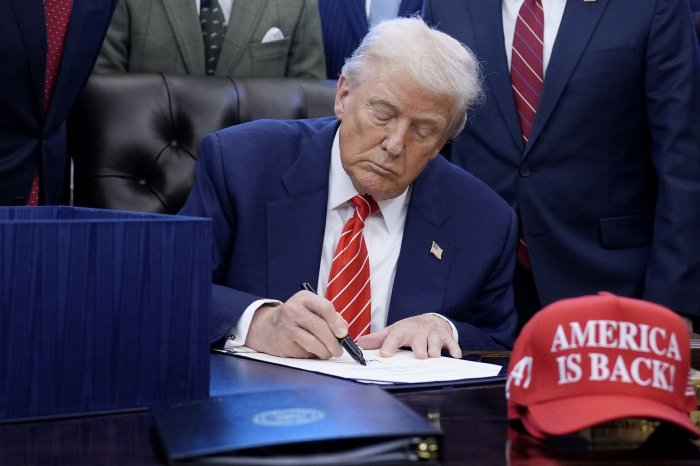Savannah Guthrie, family urge alleged kidnapper to provide proof mother is alive
Nancy Guthrie was last seen Saturday around 9:45 p.m. and was reported missing after failing to show up for church Sunday. Photo courtesy Pima County Sheriff’s Department
Feb. 4 (UPI) — Savannah Guthrie, a Today show co-host, and her two siblings said Wednesday night that they are “willing to talk” to the person who may have taken their 84-year-old mother, as authorities search for a suspect.
In a video posted on Instagram, Savannah, reading a prepared statement flanked by her two siblings, Annie and Camron, said they are aware of a ransom letter sent to media outlets, but they need proof that the person has their mother, Nancy.
“We need to know without a doubt that she is alive and that you have her. We want to hear from you, and we are ready to listen,” she said. “Please reach out to us.”
Savannah thanked the public for its support and prayers, describing her mother as “a kind, faithful, loyal and fiercely loving woman of goodness and light” who has “grandchildren who adore her and cover her in kisses.”
She said her mother’s “health, her heart, is fragile” and she lives in “constant pain,” requiring medicine that she now doesn’t have.
Speaking directly to Nancy, Savannah said that people are looking for her and will not rest until “we are together again.”
“We love you, Mom,” she said.
President Donald Trump, in a statement published after the video from the Guthries went public, said on his Truth Social platform that he spoke with Savannah and told her “I am directing ALL Federal Law Enforcement to be at the family’s, and Local Law Enforcement’s, complete disposal IMMEDIATELY.”
“We are deploying all resources to get her mother home safely,” the president said. “The prayers of our Nation are with her and her family.”
Law enforcement officials in Arizona said earlier Wednesday that they have not identified a suspect as they enter the fourth day of the search for Nancy.
In a statement posted to X, Pima County Sheriff Chris Nanos said investigators also haven’t identified any people of interest in the case. Officials believe Nancy was kidnapped from her Tucson-area home in the early hours of Sunday. She was last seen around 9:45 p.m. MST Saturday and was reported missing after she failed to attend church the next day.
“Detectives continue to speak with anyone who may have had contact with Mrs. Guthrie,” Nanos said in the statement.
“Detectives are working closely with the Guthrie family. While we appreciate the public’s concern, the sharing of unverified accusations or false information is irresponsible and does not assist the investigation.”
NBC News reported that the FBI joined about 100 detectives from the Pima County Sheriff’s Office in the search for Nancy. Trump earlier committed to sending additional federal agents to participate in the investigation.
Federal officials were assisting by analyzing cellphone data and cell towers in the area. Investigators said there was a technical problem with the surveillance cameras at Nancy’s home and they were trying to determine if neighbors had any footage of her abduction on their cameras.
Three media outlets reported they received ransom notes asking for millions of dollars in cryptocurrency for Nancy’s safe return. TMZ said the note it received mentioned a specific item damaged at the woman’s home. KOLD-TV in Tucson said it forwarded the email it received to the sheriff’s office and KGUN-TV, also in Tucson, said the note it received threatened to kill Nancy.
The sheriff’s department said it was aware of the alleged ransom notes and that it’s investigating their validity.
Nanos said that while Nancy does have difficulties with mobility — making it unlikely she wandered off by herself — she does not have any mental or memory issues that may explain her disappearance.
Investigators said Nancy has a pacemaker that last connected to her iPhone around 2 a.m. Sunday. The phone was left behind at her home, CNN reported.
Savannah issued a statement thanking supporters.
“Thank you for lifting your prayers with ours for our beloved mom, our dearest Nancy, a woman of deep conviction, a good and faithful servant,” she said. “Raise your prayers with us and believe with us that she will be lifted by them in this very moment.”

